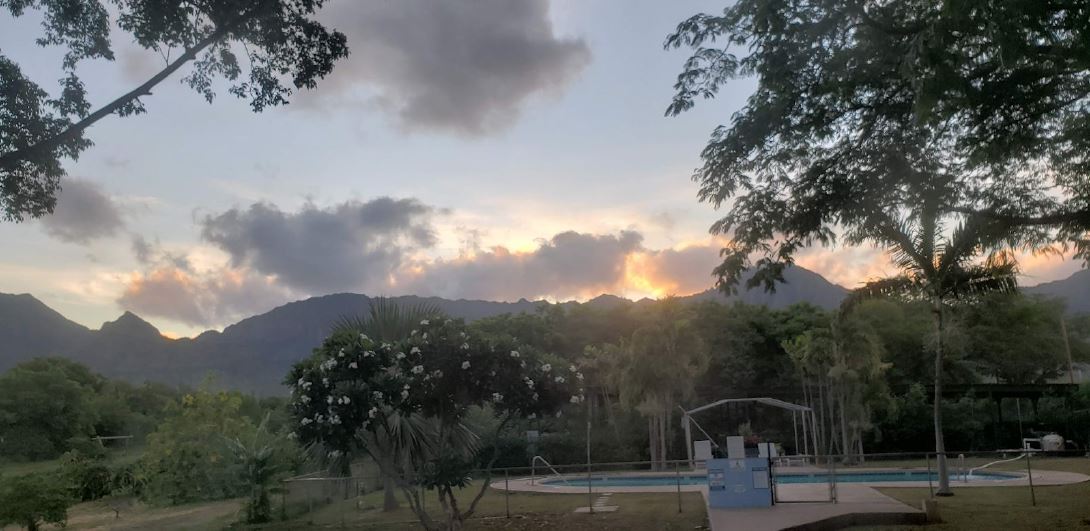
The 2nd Pacific Region Ecoversities Gathering was held from July 19 through the 21, 2019 at Kahumana, an organic farm on the Waiʻanae Coast of the island of Oʻahu. This area is known for its high concentration of Native Hawaiians and other Pacific Islanders.
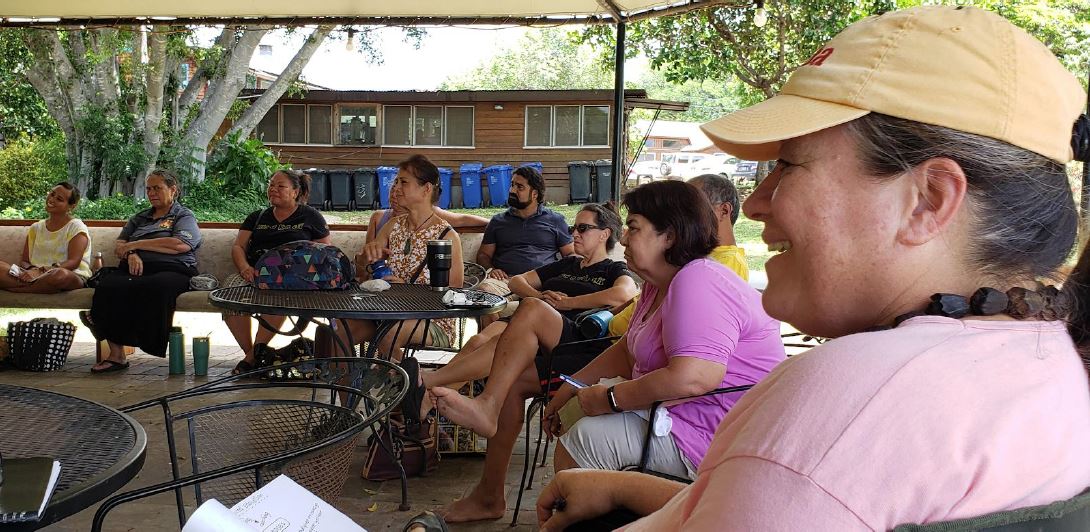
In attendance were thirty-five educators, leaders, and community/organization members from Oʻahu, Hawaiʻi Island, Kauaʻi and Maui, as well as a representative from Sāmoa. Due to travel costs we were not able to sponsor other Pacific Islanders to attend. (This is one of the reasons we hope to hold the next Pacific Region Gathering in Tahiti.)
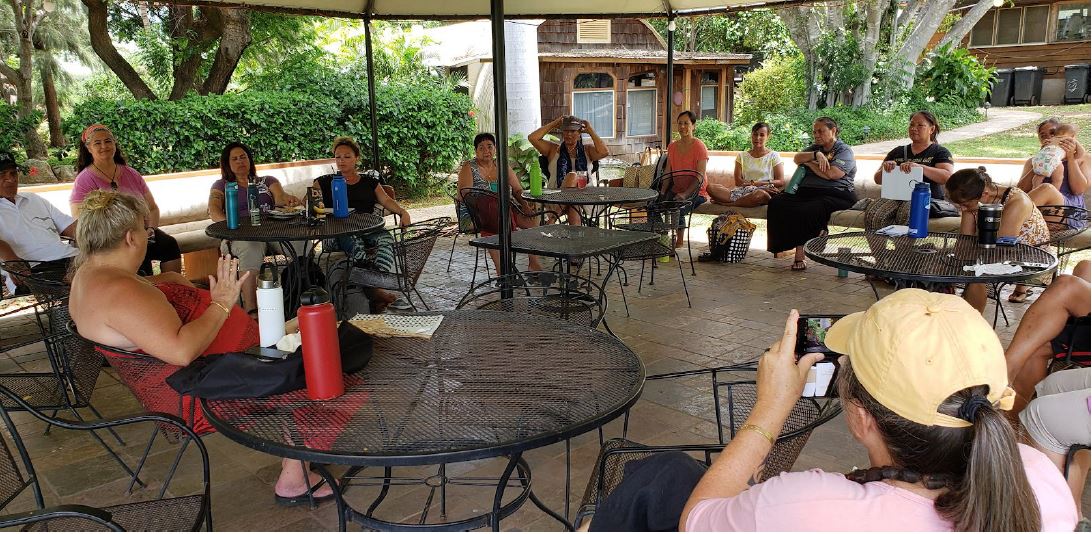
Attendees came from diverse backgrounds and were excited to talk about the future of education in Hawaiʻi and in the Pacific working with the Ecoversities movement. Based on qualitative feedback, the gathering was a great success and participants went home eager to share what they had learned and continue the momentum in their respective communities.
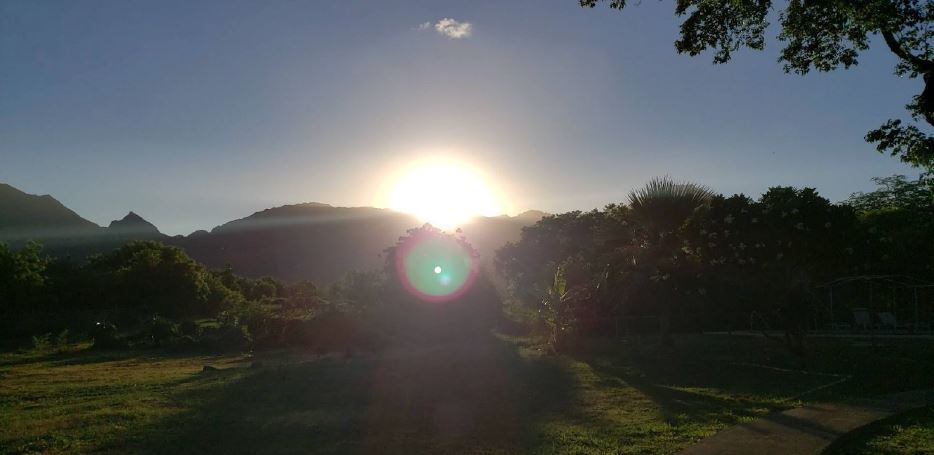
According to Pacific customs, ceremony and protocol were integrated throughout the three-day gathering in order to help participants feel grounded and focused physically, emotionally, mentally, culturally, and spiritually. This was achieved through a traditional ʻawa (kava) welcome ceremony, at the start of the gathering. As part of this ceremony all participants were asked to introduce themselves listing the places that had shaped them into who they were today and stating their commitment to be fully present during the gathering and contributing their diverse strengths to the process. In addition, every day started and ended with traditional protocol of oli (chants), pule (prayers) and mele (songs), which helped us to connect to the spiritual world, one another, as well as the environment as we chanted the sun up over the mountains every morning. Moreover there was a recognition at all times of the presence of the ancestors.
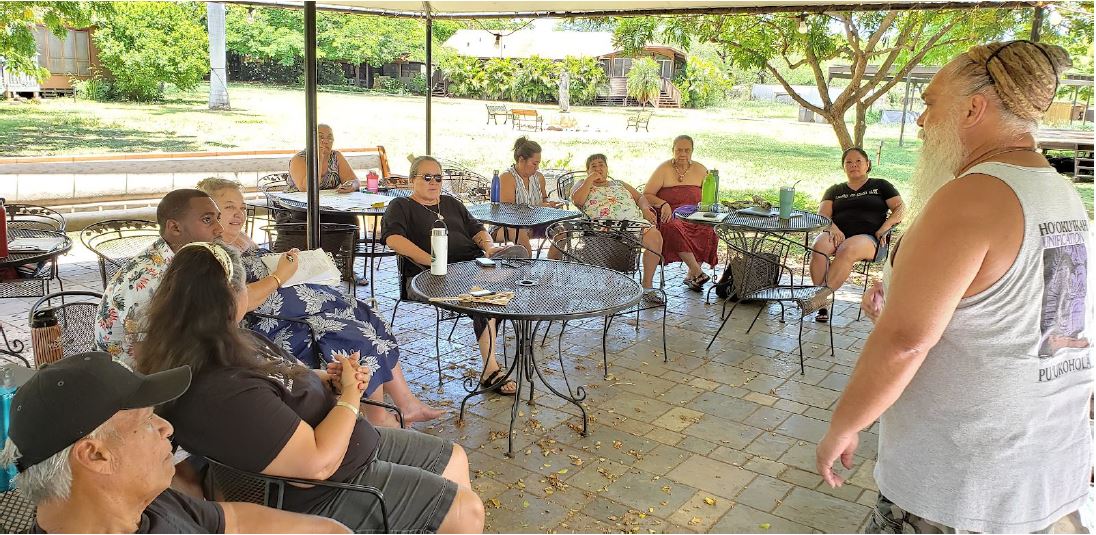
Discussions included the history of the Ecoversities movement in general, as well as an update by Nālei and Kū Kahakalau on the three (3) Global Ecoversity Gatherings to date, with a specific emphasis on a recap of the 2018 Global Ecoversities Gathering at Swaraj University in Udaipur India, as well as Kū and Nāleiʻs stay at Ghandiʻs Ashram in Ahmedabad. Especially the concept of Zero Waste, experienced at both ashrams, which is in alignment with traditional Pacific ways, was discussed at length along with ideas as to how to incorporate the concept of Zero Waste into our Pacific ecoversities movement, since reusing and re-cycling opportunities are very limited on islands. This is because there is no infrastructure, i.e. recycling plants to receive these materials, and shipping them thousands of miles to such facilities makes no sense. Hence examples from India, where individuals, families and organizations have established spaces where everything is recycled and re-used were of extreme interest to our participants.
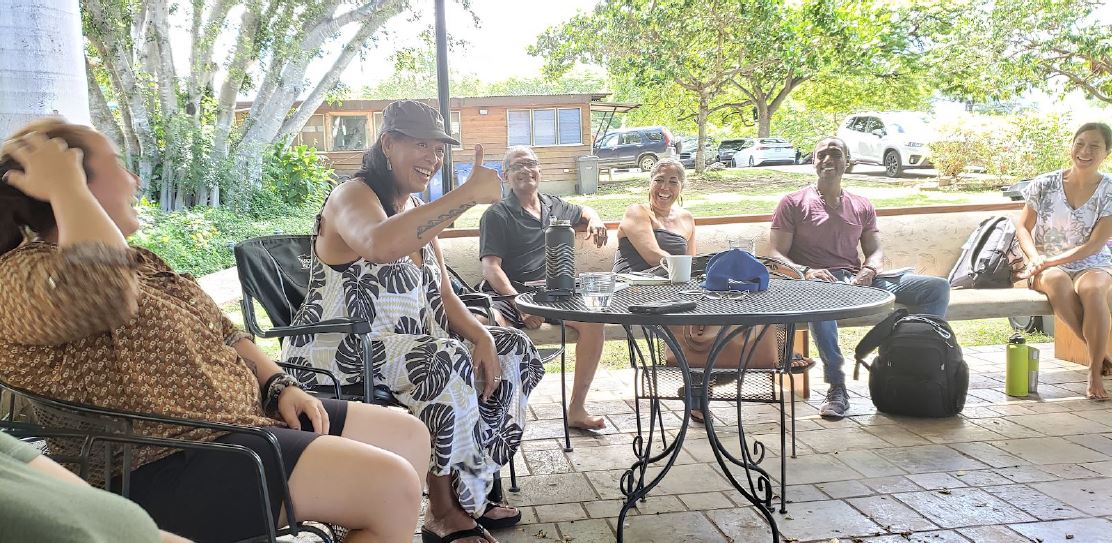
Another portion of the gathering discussed the history of Education with Aloha (EA), the conceptualization of EA Ecoversity and the proposed launch of its first cohort in the fall of 2020. Specifically the discussion focused on the following areas:
- Aloha ʻĀina (Land Stewardship, Food Security, Patriotism/Political Education, Activism)
- Hoʻōla ʻIke Kanaka (Hawaiian Culture and Language, Assessments, Electronic Portfolio)
- Hoʻonaʻauao ʻŌiwi (21 st Century Academic Education)
- Pūlehu ʻAi (Career Development, Organizational Sustainability, Entrepreneurship).
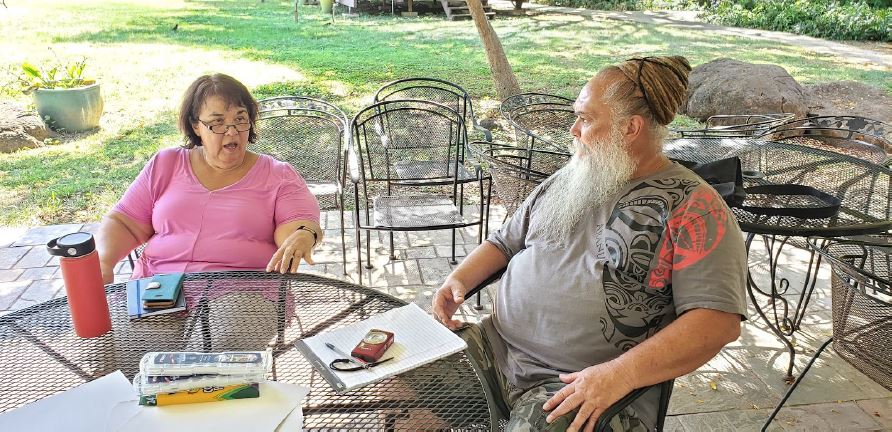
In addition to brainstorming the start-up of EA Ecoversity in fall of 2020, using talk-story, as well as small and large group discussion approaches, we also incorporated “arting”, an integrated approach for culturally and ecologically responsive pedagogy at a very high level during this gathering. In fact, one of the authors of Arting and Writing to Transform Education, published in 2018, attended our gathering and provided multiple opportunities for participants to express themselves using this motivating, relevant and place-based approach that combines culture, ecology, arting and writing.
Throughout the gathering there were also many informal discussions centered on traditional personalized island education and place-based or island-based learning. In addition, participants discussed the need for native language and culture revitalization and how to best support learners to engage hands-on in learning their native language and culture. Although the ecoversities movement focuses generally on post secondary education, participants also discussed the creation of intergenerational indigenous instruction, curriculum, and assessment approaches and materials, as well as the concept of ancient is modern and the co-relation of ancient/traditional and modern/contemporary ways of learning.
Because we expect EA Ecoversity to be independent and affordable at the same time, there were also intense discussions centering on how to create culturally-driven organizational viability, sustainability and capacity. Specifically the topic of utilizing Kū-A-Kanaka to generate income for EA Ecoversity by expanding our products and services, including the creation of culturally-driven felt stories, was discussed, along with the concept of inviting EA Ecoversity learners to join our social enterprise to learn about entrepreneurship and provide them with real world working experiences.
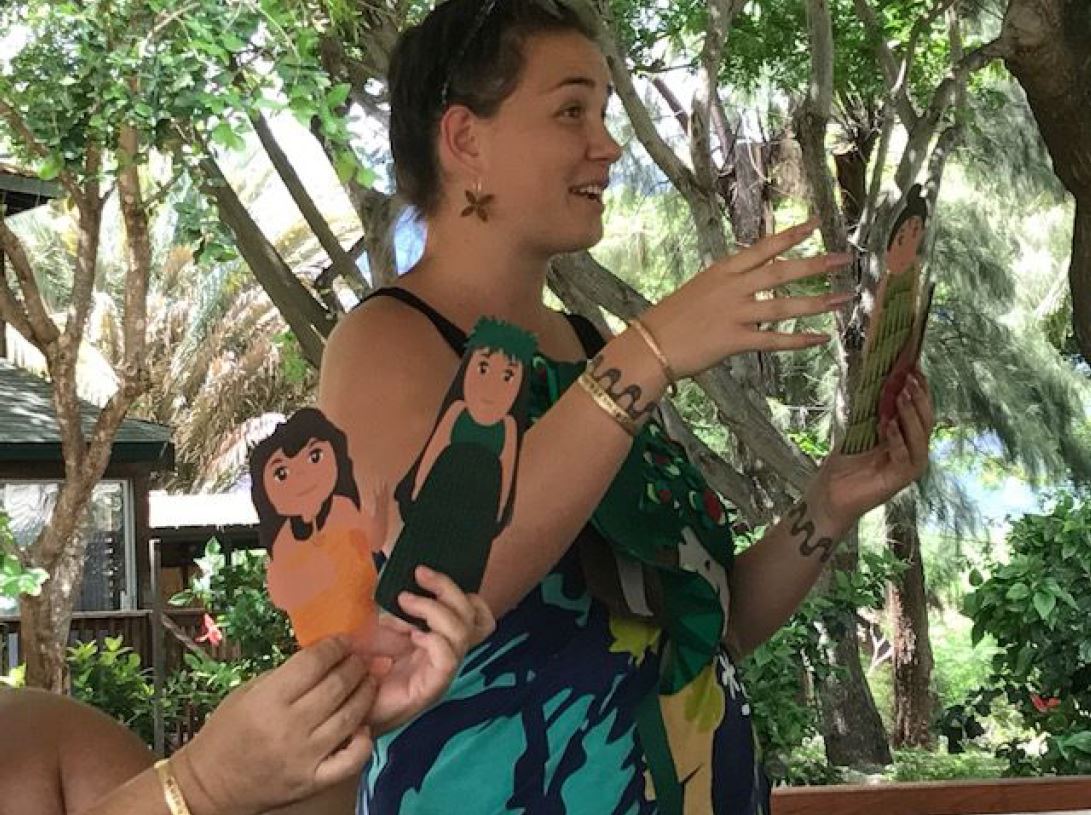
One special topic of discussion centered on micro-credentialing, badges and the creation of e-portfolios. These discussions were led by several young native Hawaiian graduates of Hawaiian-focused charter schools, who presented their e-portfolios covering their learning from middle school, through high school, four years of university learning, as well as in their current jobs. These demonstrations helped to clarify many questions of participants representing the generations who grew up without technology and validated the relevance and pertinence of e-portfolio and digital badges as evidence of learner achievements and skills.
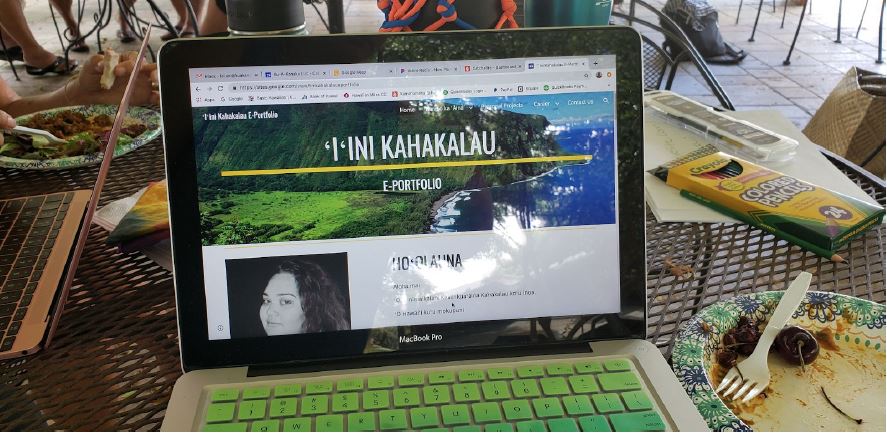
Moving forward we aim to continue our efforts to solidify our Pacific Alliance and expand ecoversities throughout the Pacific. In fact, at this time we are planning to hold our third Pacific Region Gathering on the island of Tahiti, to allow those who attended our first Pacific Region Gathering to continue to be involved and to educate our “cousins” in central Polynesia about the ecoversities movement.
In addition, we already look forward with great anticipation to the launch of the first cohort of EA Ecoversity in fall 2020. To prepare for this launch we have identified the following next steps:
- secure and set up online learning/content management system
- create content for online classes and webinars
- continue to build partnerships on all islands so EA Ecoversity learners will have opportunities to follow their desired learning pathways
- continue development of Aloha ʻĀina Badge (micro-credential in traditional Land Stewardship)
- identify and develop outdoor learning laboratories
- identify and train makua (mentors)
After a long dayʻs worth of intense brain exercises, the evenings were spent singing, playing music, dancing hula and enjoying the cool evening breezes. These informal sessions also helped to build relation among gathering participants and allowed for the exhibition of other skills, i.e. the incredible talents of many of our participants in the performing arts.
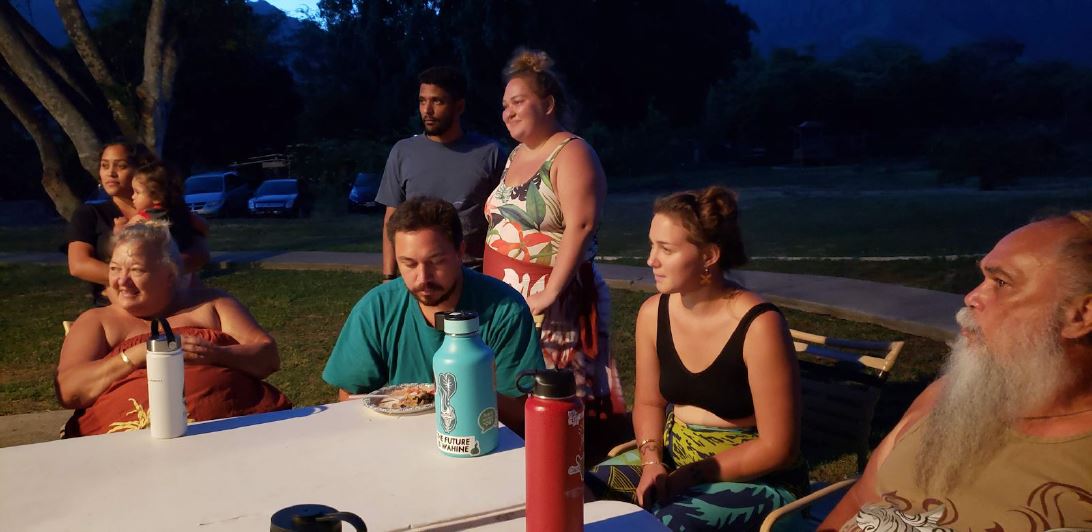
Participants of our Second Pacific Region Gathering also decided to support archipelago-wide demonstrations to stop the construction of a 30-meter Telescope (TMT) on top of sacred Mauna Kea, the tallest mountain in the Pacific, located on Hawaiʻi Island, by joining a Friday afternoon demonstration in the nearby town of Nānākuli – the largest such protest in this community ever. This mountain top has always been considered a wao akua, or region of the gods and therefore sacred to Native Hawaiians and our supporters.
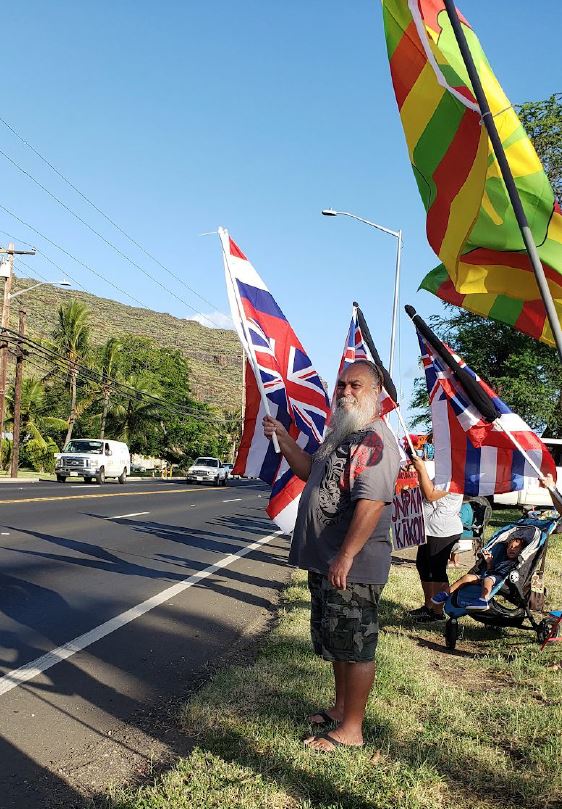
In addition to this Final Report we created a video of our Second Pacific Region Gathering, which we invite you to view at:
https://drive.google.com/drive/folders/1z20GIb7MCppSJlwMs13DjyFvOtM8zgWq
This video, which captured the gatheringʻs processes and outcomes was shared with participants of both Pacific Region gatherings as well as supporters and friends from throughout the Pacific via an e-newsletter.
Thank you again for your support of our efforts to expand the ecoversities movement into the Pacific, a region generally completely ignored by world powers and absent on most global maps.
Download the complete report.


